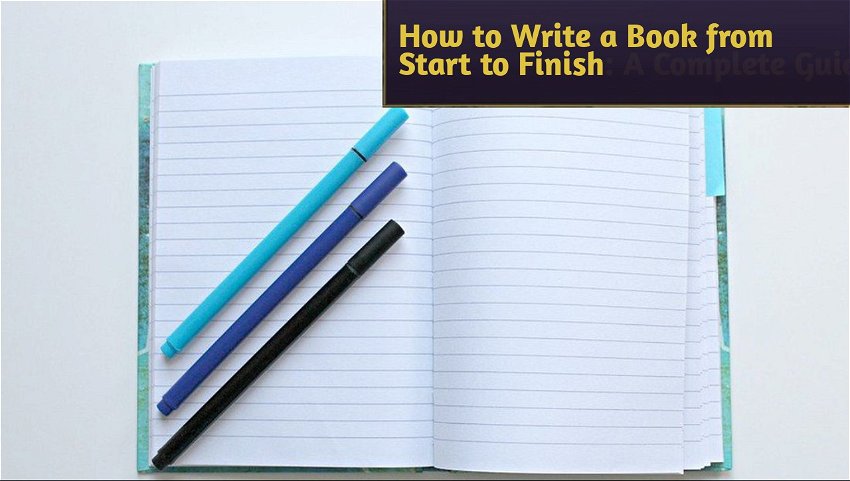Fiction, poetry, biography, essay, play? Many options can lead you to write a book, but sitting down is tricky. Before you see your work published, there are several steps to follow. And we're just talking about the negotiations with the publisher.
So, if you want to put order and learn how to make a book, we give you the most important steps in this article:
▷ Choose the theme
▷ Book structure
▷ Organizing time
▷ Proofreading and sending it to the publisher
How to choose the theme and genre of your book
The first step in writing a book is to have an idea. But, to know how to write it, you must be clear about the theme and the literary genre. To do this, you must ask yourself questions, starting with "What do I want to tell?".
Do you want to convey your feelings? In that case, it is best to go for poetry. Although you can share your emotions about a specific passage of your life, maybe you should go for an autobiography. And if what you want to convey is an exciting story? The novel is, without a doubt, your best bet, as long as it doesn't have the characteristics of a short story.
To find yourself within this map of literary genres and themes, it is best to follow a series of guidelines (yes, we have already started with the step-by-step guide on how to write a book).
Here are the tips:
• Think about what you want to tell. Whatever idea you have, this is a good starting point for writing a book.
• Think about how you want to tell it. Things get more complicated because it's about more than what you want to mean and how you will say it. Verse, prose, theater, popularization text... When you find the answer, you will be closer to knowing how to write a book.
• Make an outline. We are not asking you to write a book but to create a sample of what it could be. This way, you can see if the idea you wanted to tell is on paper and if you have done it the best way.
• Ask for advice. wait to throw away this outline! You can show this fragment to your acquaintances and lovers of literature or paper writers so they can tell you if they understand what you want to tell and the chosen method. Therefore, you have been right with the selected theme and genre.
Structure for writing a book
Knowing how to write a book is a complicated task. However, it is a matter of getting the hang of it. And to find out how to do it, there is nothing better than structuring it properly.
The title
Although it is advisable to name the creature as soon as possible, this section should be open before you start writing your book. Just having an idea is enough. As you immerse yourself in the writing of your work, you will find new clues that will help you find the correct title.
When you decide to close this section, you do it through a brainstorming session. Don't just go with the first option that comes to your mind. Suggest several options and even let your friends and family know about them. This way, you can find the best option.
How many more parts can there be, and which ones are important?
Knowing which parts should be in a book is challenging since each work has its own needs. Regardless of your chosen genre, you should be guided by the structure 'presentation - knot - denouement'. Although it may seem that this skeleton is the property of novels, the truth is that it can be applied in other environments.
For example, if you have decided to write poetry, the presentation should be your proposal to the reader. You should begin by showing your verses in such a way that the first stanzas that appear in your book are an introduction. As you advance in the plot, you should give free rein to this style and close with a farewell that lowers the tone until the final stroke.
In the case of popularization books, it is the same. First, you will have to present the subject on which you will develop, during the knot, your arguments and, as an outcome, the conclusions you have reached in your proposal. It goes without saying how this structure applies to genres such as biography.
Organize the time it will take you to finish writing the book
Time is money, and when it comes to writing a book, it is one of the investments you must make. You will indeed have bursts of inspiration that will make you advance in your work and other moments in which you will be paralyzed and not know what to do. Nevertheless, organizing yourself is better so you don't waste a single millisecond. Take heed of these tips to help you better manage your writing time.
Set reasonable deadlines: Decide by what date you must have your manuscript ready to submit to the publisher. You should always be confident at this point and assume that you can reach a point on the calendar that is too tight. It's better to overdo it rather than go with the clock ticking on your heels.
Time invested per day: Once you set a deadline, try to fit in small milestones that you can visualize on the calendar. For example, I must have this part of the plot ready by X day. Again, we invite you to be realistic. You must be aware of what your book and the sections of it look like.
There will be times when you need more days of writing. Others will take less time. And don't worry if you go over the schedule, but remember to readjust this calendar with these changes to avoid unwanted surprises at the end. This schedule is a living element that may be subject to variations.
The best times to write: When to write is a very personal thing. The best times are known only to you. However, we advise you to choose times when you can dedicate your mind 100% to this purpose. That is, avoid situations such as, for example, an hour close to the time you are preparing dinner or an intermission in which you have to dedicate yourself to other tasks.
Always look for tranquility. For this reason, the night or early mornings are highly recommended to avoid sound distractions that hinder concentration. We also do not recommend sitting in front of a blank page while digesting your food because the drowsiness will slow your writing work.
Tools to organize your progress
How do you know if you are on track and schedule? The answer is simple: using tools that allow you to control your progress. In this sense, we invite you to have an agenda where you can write down each milestone in the development of your book and consult it every day.
You must always remember to review this tool and compare it with your previous work. This way, you will know if you are meeting your deadlines. Another formula that will help you organize your time is writing simulations.
Applications for writing a book
On the other hand, new technologies provide tools such as Trello, a manager where you can document your progress, set a date, and even divide tasks by subject. Its system will also allow you to establish a color code with which you can decide which tasks are more urgent and attend to them as soon as possible.
As a bonus for having read this far, the Writing Calculator. A free online tool will allow you to calculate how many words you should write daily to reach a total. Do you dare to make these estimates?
How to organize your ideas and drafts
New technologies will be your best allies when writing a book. On the one hand, you have office automation programs with which you can write and save your changes. Many even allow you to keep your progress in the cloud, so you will have insurance if your computer breaks down. One of the best-known is Google Drive, which offers up to 15GB of free storage.
Smartphones also offer you several applications to organize your ideas. EverNote is one of them. In this space, you will find options to jot down notes that occur to you at times when you can't write your book and take them back to your computer.
Proofreading, validation, and submission to the publishing house
And so much for our advice on how to write a book. We have focused on the writing process, and its conclusion does not mean you are ready to send it to a publishing house and start the publication process.
The first is proofreading. No one is perfect, and if you look through your newly drafted manuscript, you are sure to find spelling mistakes, phrases that are not understood, concordance errors, rambling passages, and many other possibilities. Give this text a once-over and ask for help from reading lovers in your area.
Once you have validated this manuscript, it is time to send it to a publisher to begin the publication process.










— 评论 0
, 反应 1
成为第一个发表评论的人